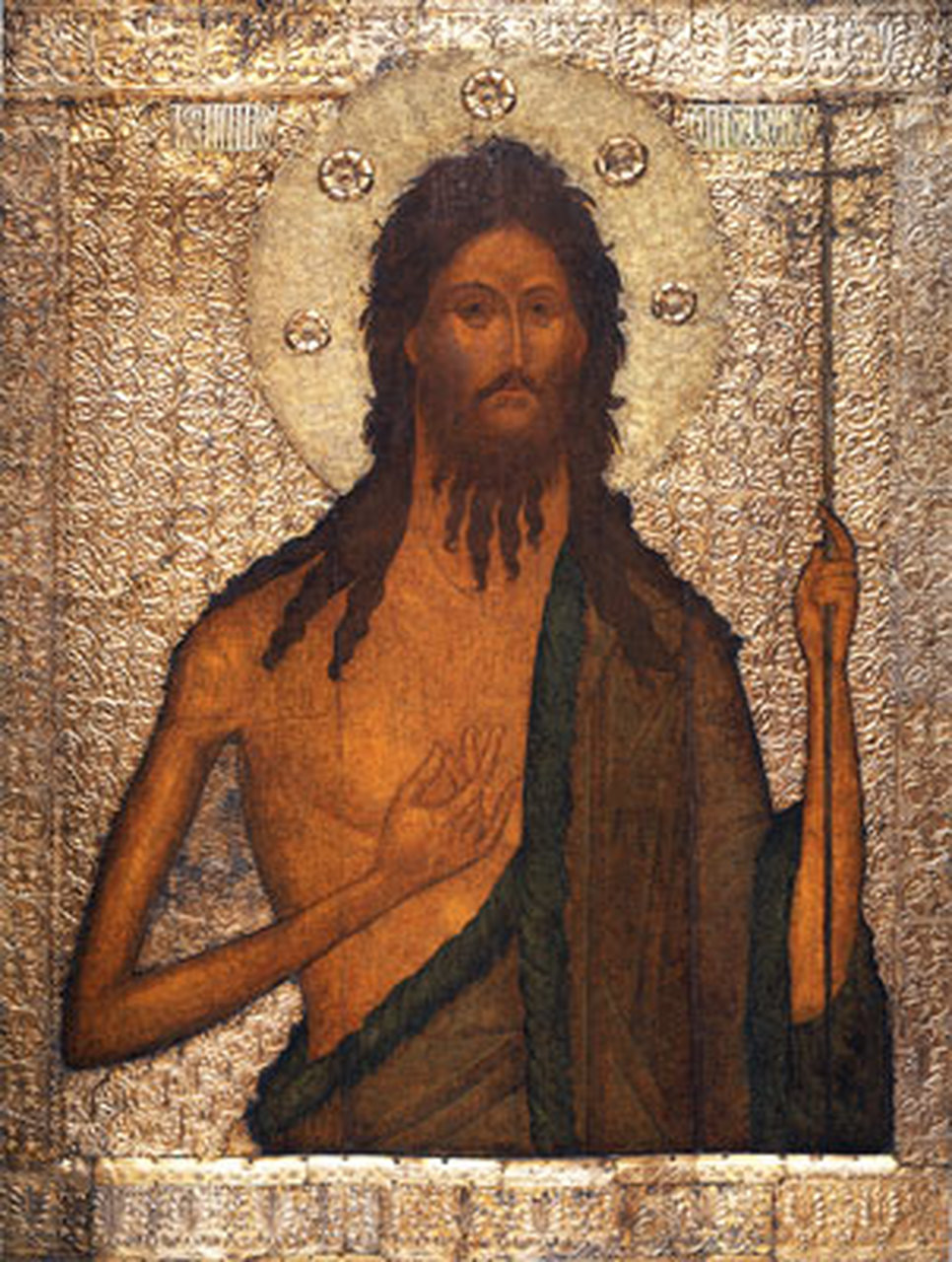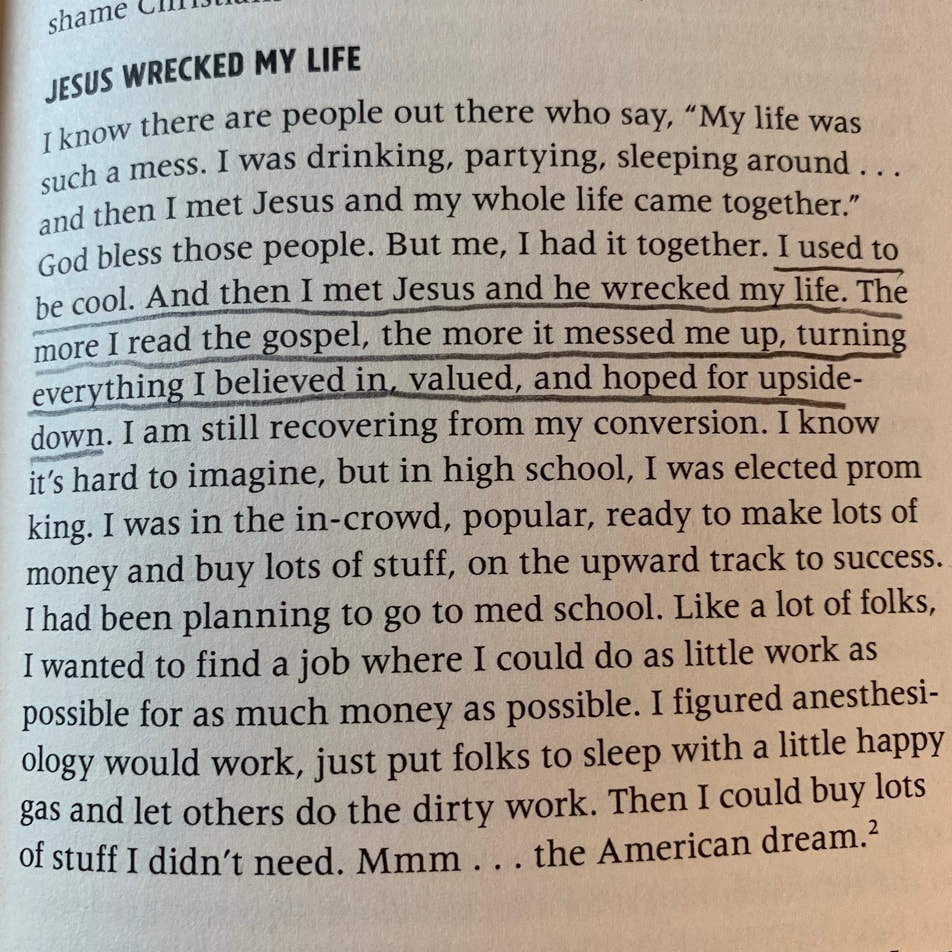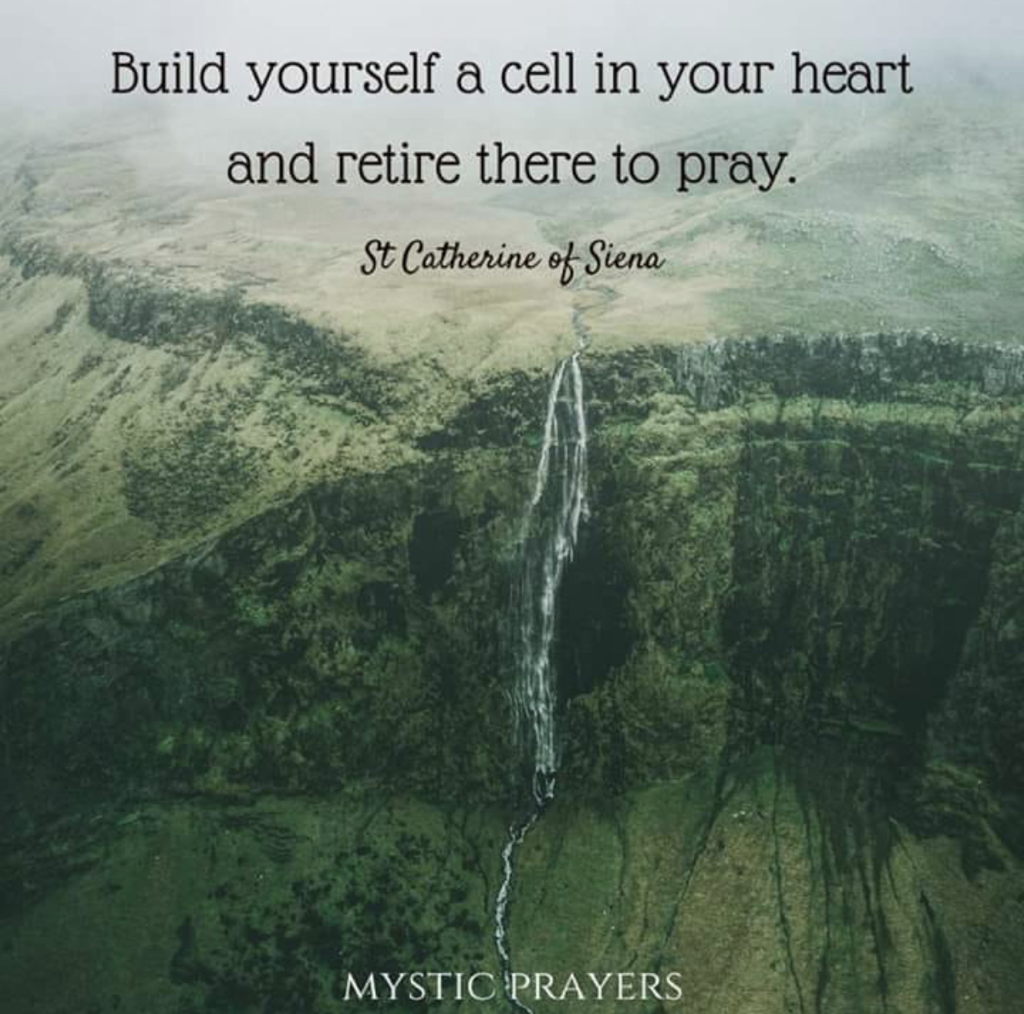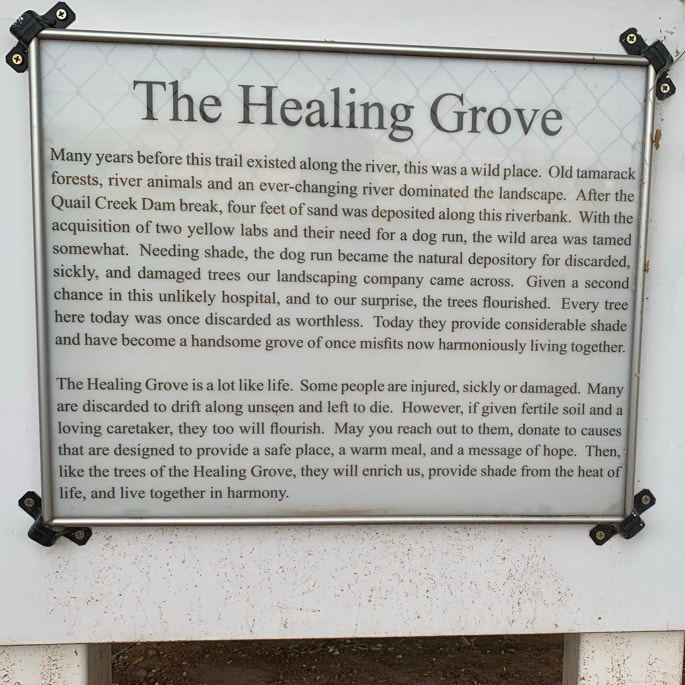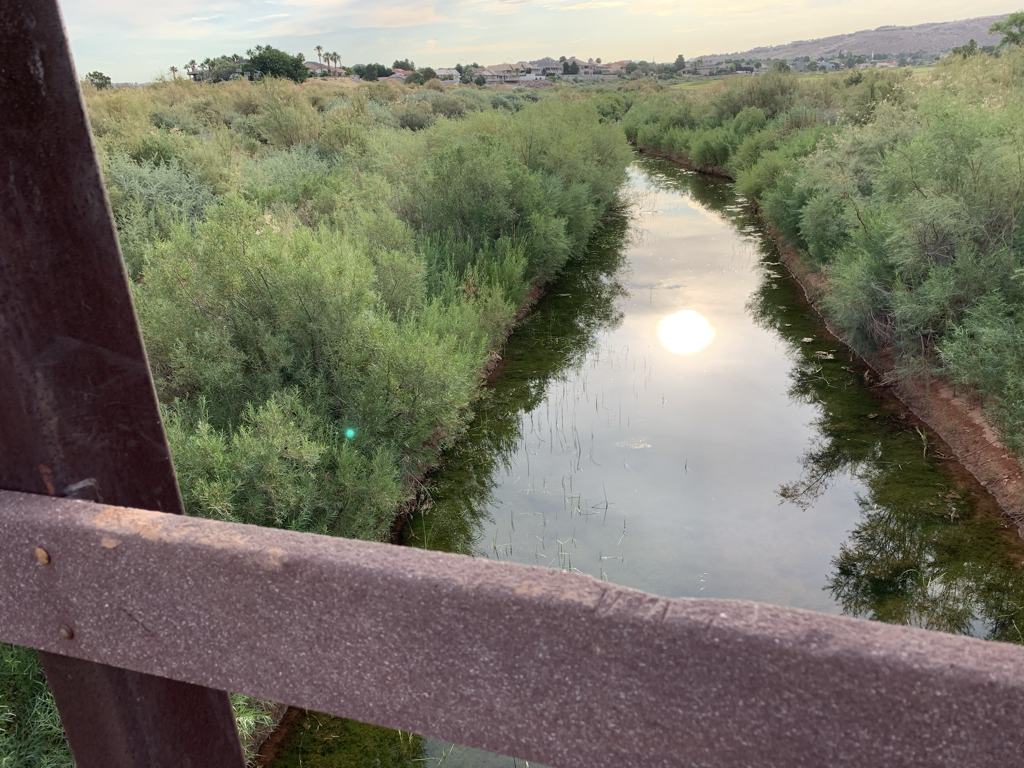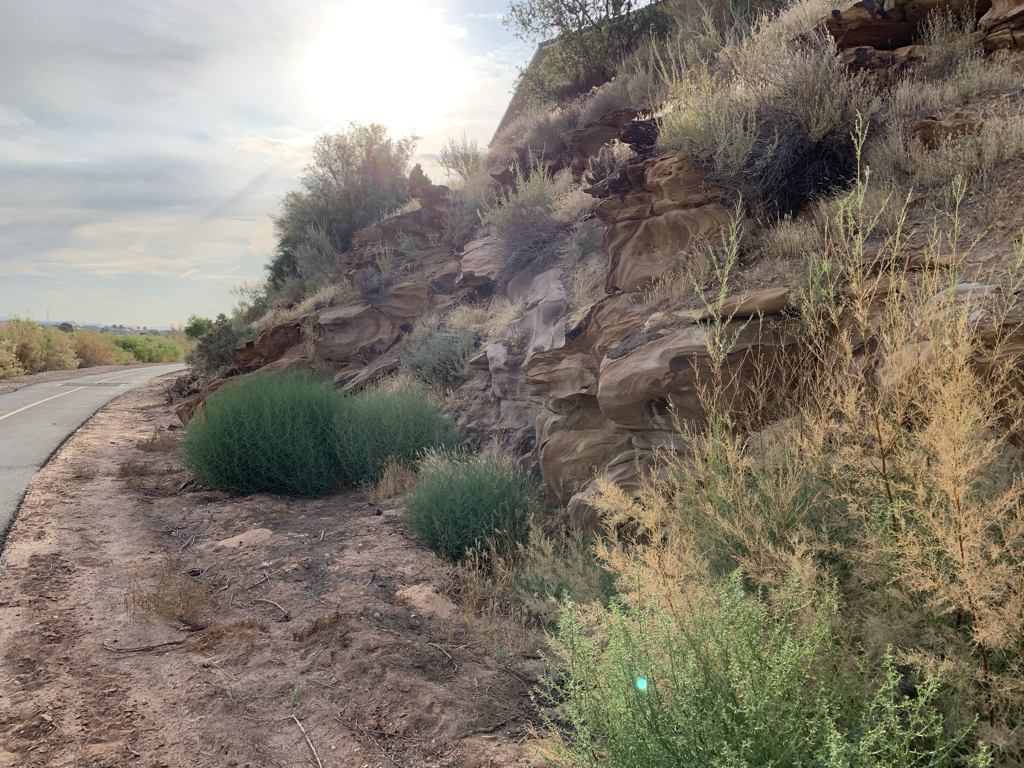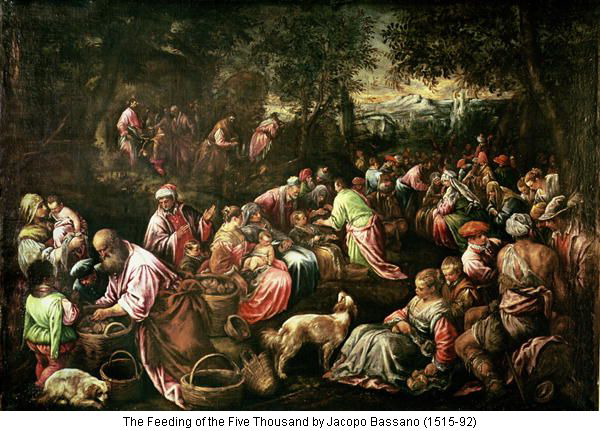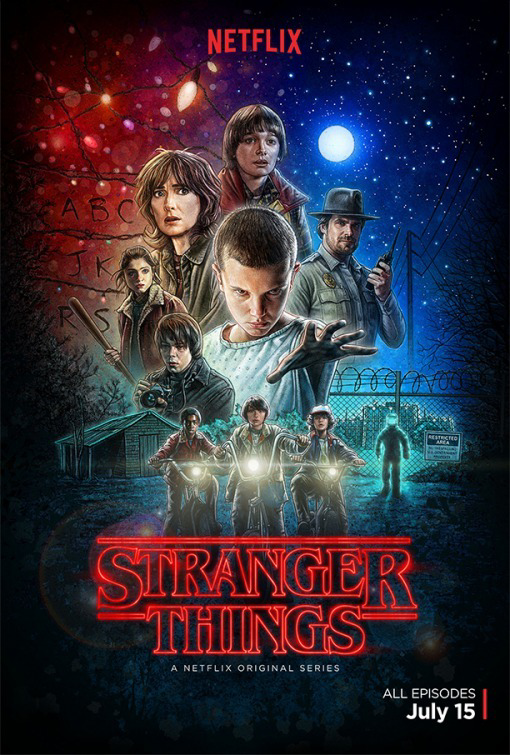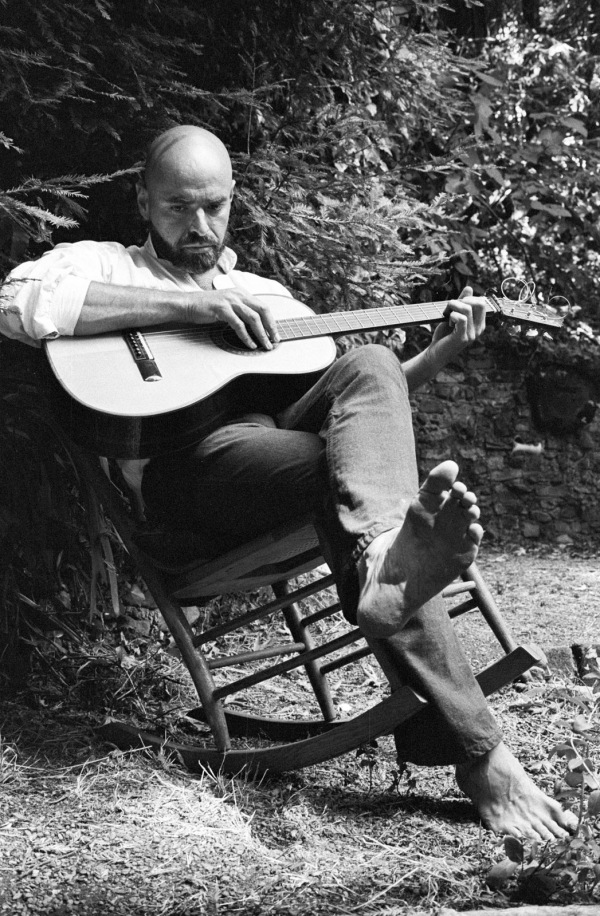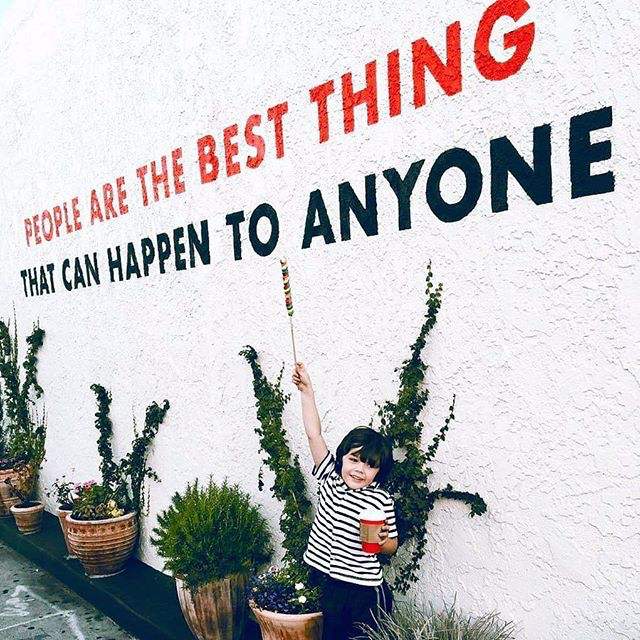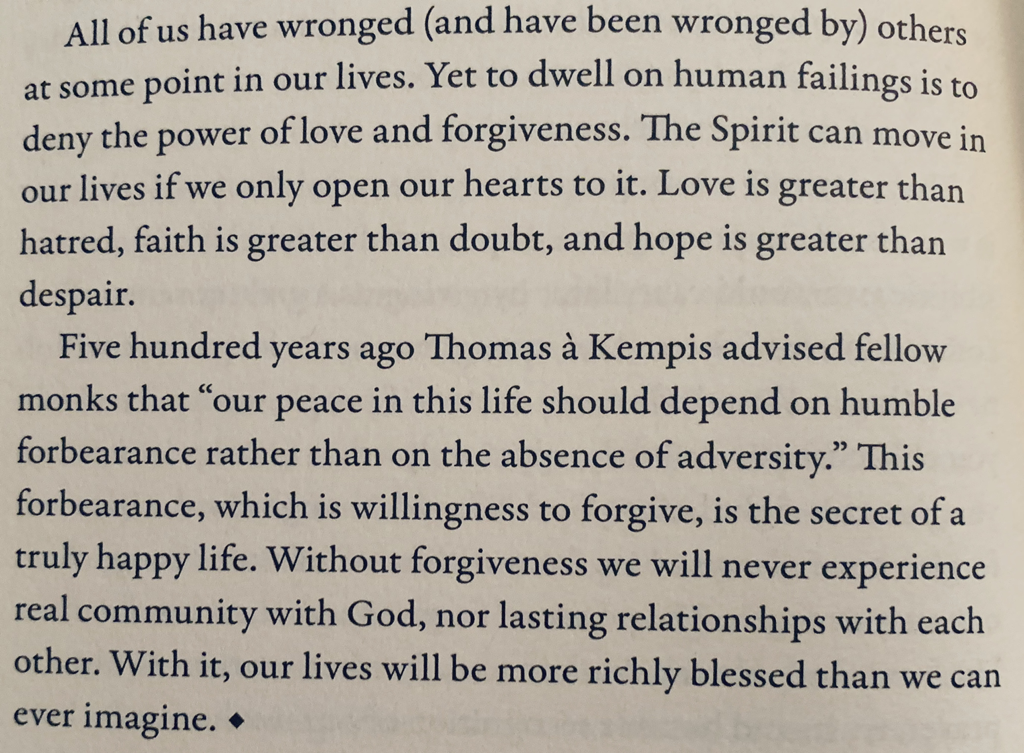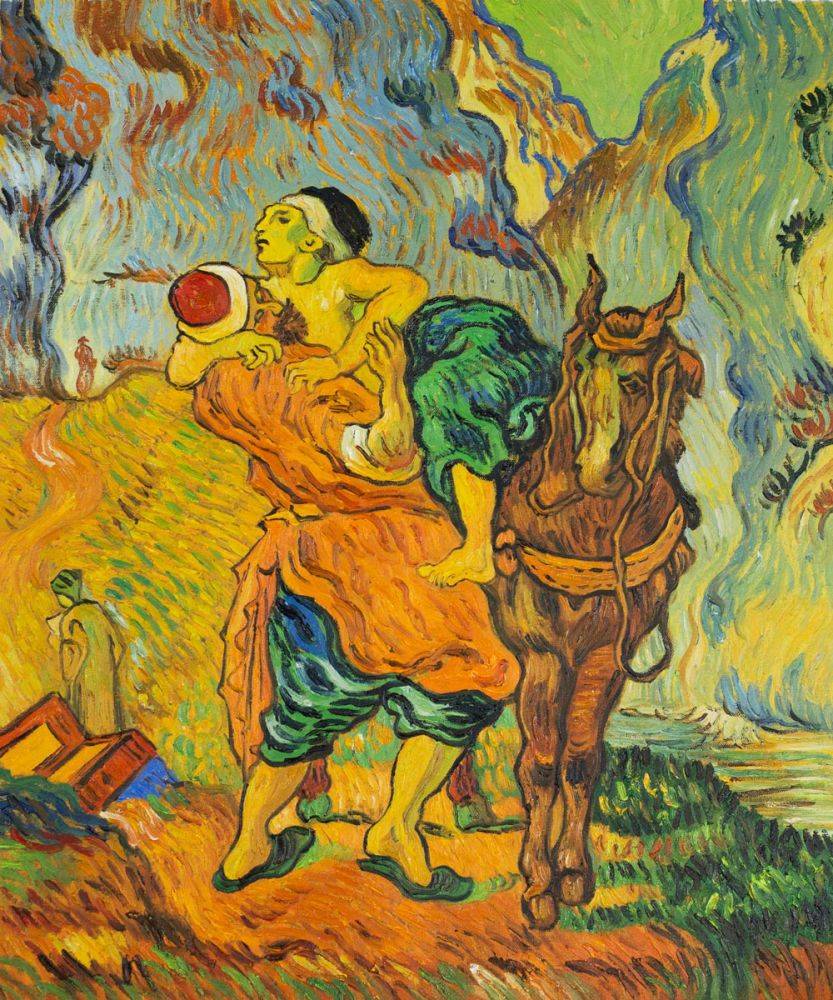Three times Jesus asks, “What did you go out there to see?” A politician whose views change direction wherever the wind blows? A fancy king who only looks after his own best interest? Heck, you wouldn’t have to leave the city to find that. No, they came to see a prophet. One who didn’t mince words and wasn’t afraid to speak out against the king.
That was John. He belonged in the wild with the rebels and renegades because his message was revolutionary. “Repent!” he screamed. “Change you heart, correct your thinking. Bear good fruit or risk being chopped down and thrown into the fire.” John was no ordinary prophet. He was the one who prepare the way for a radically new political realm, with a new king who would rule not with violence and death, but with peace and healing. Some of the very things the people were searching for when they went to see John. In comparing John to Elijah – the one to announce the coming of the Messiah – Jesus made a powerful statement about himself. One that threatened the kings and the economy of the world. Those who had ears knew what was happening. That’s why they risked their life to go to him. I reckon we all eventually wind up in a wilderness at some point in our lives because at some point the world will fail to provide what our hearts truly desire joy, peace, hope, love, mercy, justice and grace to name a few. I came here with the intentions of getting some clear answers to question that have been weighing on my heart about the church and my ministry. But honestly I’m looking for the same thing as those people who went to see John. Like I said last week, we’re all hungry for the food God has to give us. And it was out there, in the desert wild, I found exactly what I was looking for.
Watch the message here
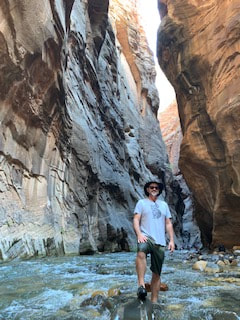
Now while our girls were at camp, a friend and I did some hiking in Zion National Park - which seemed fitting for my wilderness journey. In the bible, Zion was known for many things, one being the Kingdom of God. Jeremiah writes, “Arise, and let us go up to Zion, to the Lord our God (Jer. 31:6).
On every trail we took, we were surrounded by majestic mountains, painted with the most vibrant colors. Like heaven itself, it’s impossible to adequately describe what I saw, but the grandeur of God’s glory was undeniably present. On our hike through the Narrows, a trail that is literally a river, Jim and I sloshed through the water, flanked by massive walls of reds and oranges and grays that seemed to squeeze closer together the further up river we walked. When we weren’t tripping over shifting rocks, we were wadding through the wild currents. And whenever it got difficult or laborious I’d say, “Fear not. We are in the Kingdom of God.” And at times I swear I heard the canyon walls echo the psalm, “I lift my eyes to the hills – where does my help come from? From the Lord, the maker of heaven and earth. He will not let your foot slip” (Ps. 121:1-2). At least that’s what was in my head as Jim’s shoe began to slowly fall apart. The first of many stops to repair Jim’s damaged shoe was on a tiny river bank that was barely big enough for the two of us. It was there I first saw this massive butterfly with bright yellow wings fluttering in the wind. It kept swooping down to get my attention. To my surprise, this beautiful creature followed us up the river and all the way back just to make sure the message was received. It took a moment for me to realize but this butterfly was reminding me where I was and who I was with. I was in the Kingdom of God, in the presence of the Christ, whose Spirit made sure our feet did not slip. Our knees took a beating but our feet remained firmly planted in God’s care. I had come to the wilderness to find divine inspiration, but it was the Divine who first found me. 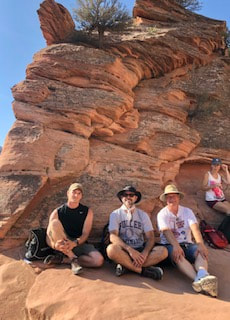
Two days later, Jim and I were hiking to a place called Angel’s Landing. It’s a steep 2,000 foot climb to a narrow summit that got its name because it was once believed only angels could land there. With a 1,200 foot drop off on either side, I believe it got its name because one wrong step and you’ll be an angel landing.
We took that hike with a young man named Nick who left his wife at the lodge to hike alone. I learned Nick was raised Catholic but likes to study all the ancient religious and spiritual practices. Nick had a ton of energy that helped push us two older men up the mountain. But he also had a ton of questions about God... good ones too. I wish I’d thought to answer Nick’s questions with a question like Jesus likes to do. What did you come out here to see? What are you looking for in life? What do you hope to find? Instead, I told him about the butterfly and what Richard Rohr once said, “God loves things by becoming them.” No sooner did those words leave my mouth, when guess who showed up flapping its large yellow wings announcing, “The Kingdom of God is here.” I told Nick if you want to see God, all you have to do is open our heart. This is true to all of us. We hold the key to the answers we seek. Like Rohr describes, “If you want to find God, then honor God within you, and you will always see God beyond you. For it is only God in you who knows where and how to look for God.” No matter where you are, whatever questions you have, or issues you’re dealing with, turn your eyes inward and say hello to God. You need to look no further than your own self because that’s where God has chosen to dwell. God has made all things, and in all things is the Divine. And that includes you and me. I am not suggesting we are God. We are made in God’s image, not the other way around. In all his ways, Jesus taught us to keep our hearts open...not so God can come in and change us but so that we can go into ourselves and be changed by God who loves us enough to become one of us. By following the way of Jesus, the Christ, we discover not only how powerful and healing God’s love can be but that we also possess that power. And with that power comes the great responsibility to open and heal the hearts of the world to move humanity from a place of violence to a kingdom of peace. When we keep our hearts closed – our minds and hands are quick to follow. Just as the butterfly reminded me of where I was, and what I had been seeking, so to does Jesus remind us of what we must do to share God’s love in the world. Paul tells us that we must imitate Christ. Or as I have been saying all year when you see and do what Jesus does, then you learn and teach the will of God for others to follow. Let those who have ears listen. It doesn’t matter if you’re walking in the wilderness, or stuck in an office, or sitting in a classroom, a wheelchair or prison cell, you have all the hope and peace, freedom and grace you desire because the love of God in you. Knowing this, you can be for others all that the world is unable to be...the very love of God, no matter where you are or what wilderness they are in. The people flocked to the wild to see John. They risked their lives to receive the good news. But they saw the unexpected... a glimpse of heaven here on earth. That’s the power of God’s kingdom and the transforming love we receive from its king, Christ Jesus. Amen. Work Cited Rohr, Richard. The Universal Christ: How a Forgotten Reality Can Change Everything We See, Hope For, and Believe. (New York: Convergent Press, 2019).
0 Comments
Not only is faith a way of knowing, a form of knowledge, but it is also one of life’s great teachers. At no point is this fact more clearly demonstrated than in an individual’s growing knowledge of God. It is obvious that, in the last analysis, proof of the existence of God is quite impossible. A simple reason for this is the fact that, if there is that to which God may be finally reduced, then He is not ultimate. But let us not be led astray by this apparent abstraction. Faith teaches a man that God is. The human spirit has two fundamental demands that must be met relative to God. First, He must be vast, limitless, transcendent, all-comprehensive, so that there is no thing that is outside the wide reaches of His apprehension. The stars in the universe, the great galaxies of spatial groupings moving in endless rhythmic patterns in the trackless skies, as well as the tiny blade of grass by the roadside, are all within His grasp. The second demand is that He be personal and intimate. A man must have a sense of being cared for, of not being alone and stranded in the universe. All of us want the assurance of not being deserted by life nor deserted in life. Faith teaches us that God is—that He is the fact of life from which all other things take their meaning and reality. When Jesus prayed, he was conscious that, in his prayer, he met the Presence, and this consciousness was far more important and significant than the answering of his prayer. It is for this reason primarily that God was for Jesus the answer to all the issues and the problems of life. When I, with all my mind and heart, truly seek God and give myself in prayer, I, too, meet His Presence, and then I know for myself that Jesus was right.
Work Cited: Howard Thurman, Deep Is the Hunger: Meditations for Apostles of Sensitiveness (Friends United Press: 1978, ©1951), 145-146. See Howard Thurman: Essential Writings, ed. Luther E. Smith, Jr. (Orbis: 2006), 43. A quote from Shane Claiborne, taken from his book Irresistible Revolution: Living As An Ordinary Radical (Zondervan, 2006), got me thinking but I don’t want to tell you what I thought or where my head and heart landed. Instead I invite you to read this passage and think of how Jesus has that affected you? Or how Jesus wrecked your life...as you understood it to be.
In his morning devotional (read a week too late) Fr. Richard Rohr offers us this quote that I thought to be fitting to the goal of this blog:
“If you want to find God, then honor God within you, and you will always see God beyond you. For it is only God in you who knows where and how to look for God. When you honor and accept the divine image within yourself, you cannot help but see it in everybody else, too, and you know it is just as undeserved and unmerited as it is in you. I call this the “Principle of Likeness.” From this frame you stop judging and start loving unconditionally, without asking whether someone is worthy or not. The breakthrough occurs at once, although the realization deepens and takes on greater conviction over time.” Adapted from Richard Rohr, The Naked Now: Learning to See as the Mystics See (The Crossroad Publishing Company: 2009), 159-161; and I was walking along a pedestrian pathway in St. George, Utah when I came upon this odd little garden, and a well-needed canopy of shade provided by an array of mismatched trees. As I sat a looked at the Virgin River winding its way alongside the pathway, my body began to feel strangely calm. Perhaps my soul was glad to be out of the climbing heat (95*F) that interrupted my early morning walk (it was 8:13 am). Or perhaps it was something else. As I returned to the pathway I saw this sign (below) and realized it was the latter.
It’s been said that the first Christians remembered Jesus, not in death, but with food. When they gathered around the table to eat a meal, they not only thanked God for the bread from the earth but also the bread from heaven that came to nourish the world. In the early church every meal was sacred and holy because of stories like this one.
Even though Mark doesn’t say it, we assume the people who had gathered to see Jesus are hungry because the disciples seem concerned. When they mention this to Jesus they are told to “go and feed them.” I’m sure the group nervously chuckled as they rummaged through their pockets looking for what little, if anything, they had. “There isn’t much” they finally lamented. So Jesus asks the twelve, “Well then, what do you got? How many loaves do you have?” It’s a quick count. Five. Not even close to what they need to satiate their own hunger, muchless five thousand men, plus their families. Jesus sees their hungry eyes upon him and knew what the twelve were trying to convey. They had witnessed him turn giant vats of water into the most amazing wine they had ever tasted. They saw him raise a good friend from the dead. If anyone could make a meal fall from the sky, at this place and at that hour, it would be their teacher. In fact, that’s why all those people where there in the first place, to see Jesus do something amazing. But Jesus didn’t come to do magic tricks. He came so people could see the glory of God, and to teach us to do the same. This story opens our eyes to the power of God’s love, and it teaches us what it means to share that love with others. And it also reminds us of how God empowers you and me to take our ordinary lives and make something extraordinary. At this church we affirm that God is love. And we believe Jesus is the perfect definition of what God’s love looks like. For example Mark said, “Jesus saw the people and had compassion for them.” He did not turn the crowd away, but took the time to talk with them and care for their needs. We might say he fed their souls. God is love, and if Jesus is a representation of that love then that tells me there no need is too great or too small to bring before God who loves you enough to take the time to ensure your needs are met. So we pray, give us this our daily bread. This is good because people are hungry these days. They’re hungry for love. They’re hungry for justice. They’re hungry for peace, and unity, and reconciliation. We may not hunger for food, but we all have a hankering for something greater than what we can give ourselves. Whether we know it or not, we all hunger for God. You might have noticed in this story the people aren’t demanding to be fed. They didn’t come for actual bread, but came for the bread of life himself. “Whoever comes to me,” said Jesus, “will never be hungry again.” That was true then. It’s true today. Because of great love for us, God has prepared the most exquisite banquet feast for all who wish to come and be fed. At God’s table, no one is turned away, and there’s more than enough to go around. We affirm that God’s love, and that divine love is made manifest through Jesus, the Christ. Through him the power of God’s love is made known to the world. One of those ways Jesus does this is by sharing that power with those who follow him...including us! For some great mystery to me, God has entrusted you and I with an awesome responsibility – to let God’s glory to shine through us upon the darkest of places. As it is written, “no one has seen God, but when we love one another, God is made visible through us.”
watch the service here
Take a look at the story again and you’ll see that Jesus doesn’t feed the people. The disciples do it. God works through people like you and me. We are the body of Christ, the hands and feet and heart of Jesus through which God’s will is done.
Whether it’s making a sandwich for a hungry child at the border, or holding the hand of a grieving friend suffering a tragic loss, or praying with someone who lives alone on the street… Jesus calls us to be the bread of life – to feed those who hunger for God’s love and righteousness. That’s right, you and I are like Jesus, called to be the bread of life. How does knowing that change the way you hear Jesus’ question: “How many loaves do you have?” In other words, how can you take what God has already given you and feed those who hunger for it? You might believe you don’t have much to offer. That’s what the disciples thought. They saw what little resources they had and believed it was impossible to meet the needs of all those people. But Jesus gave them the imperative, “go and see.” I invite you to do the same. Go and see, and you will discover God’s love is in you. Just as he did with the disciples, Jesus takes what you have and blesses it. That’s when the real miracle begins. Love multiplies and soon there is enough for everyone, and then some. We affirm that if God’s love is in you, then you possess all that you need to share God’s banquet feast with others, and you do that through concrete acts of love, justice, compassion and mercy. You have enough love in you to forgive those who have hurt you or betrayed your trust, and to reconcile your difference with your enemies. When you see and do what Jesus does, allowing God’s love in you to be made manifest, you become not just miracle worker… but the miracle itself, the one blessed and multiplied by Christ. Whenever I read this story, my mind always goes back to the apartment complex where Kathleen and I first met. It was one of the greatest churches I’ve ever gone to. It was communal and life-giving. Filled not with statues of pious saints, but with breathing sinners from all walks of life who had great love for one another. That love was best seen in the meals that we shared around a rickety old garden table Kathleen and few others had painted. On any given night we fed one another with a collection of stuff gathered from our refrigerators and cupboards. A jar of spaghetti sauce from Stacy, a head of lettuce from Kristine, carrots from Rochelle, bread from Kathleen’s kitchen, spaghetti from mine, and left over bottles of wine from pretty much everyone who had some. We all ate, laughed, cried, sang, confessed and hoped together. There at that table our hearts were full. “When we all come together with what we have,” writes Shane Claiborne, “we all will be fed.” That was true in that apartment in Hollywood, just as it was in that field with Christ and the twelve. Jesus asked the disciples to go and see what they had to give. The twelve took an inventory of their hearts and faithfully began to share what little they had. But I believe the real miracle happened when those who saw what the disciples did … looked within themselves and began to do the same. A little bread, some fish, cheese, olives, and perhaps some wine. Those who had, shared with those who had none. No one was left hungry, and there was plenty left over. Maybe this is why the early church loved this story and told it all the time, especially when they ate. Not only does it speak to God’s abundant love for them, but it also gave them a concrete way to live and share that love with one another. In the days following Pentecost, it is written that “everyone shared what they had and no one was without.” If you ask me, this is how God manifests real, life-changing miracles every day. In us and through us. When we share God’s love amazing stuff happens. Ordinary things become extraordinary. So as you leave here today, remember that whatever you have to give, it is more than enough for God to bless and use for the good of the world. (Remember that when you think about tithing to our ministry.) Jesus led by being a living example – by being the bread of life for all so no one goes hungry. Through him God feeds us, nourishes us, and empowers us to go and do the same…to continue his mission of sharing God’s glory in all that we do. When we come together in unity and faithfulness, miracles happen. Love is shared. Lives are changed. Souls are fed. And no one goes without. But more importantly the glory of God’s love, peace, and justice prevails…in abundance. Through us, and with us, God is setting the banquet table to feed all who are hungry. And thanks to Christ Jesus, the bread of life and the cup of salvation, no one will ever be turned away. Work Cited: Bartlett, David L and Barbara Brown Taylor, eds. Feasting on the Word, Year A, vol. 3 (Louisville: Westminster John Knox, 2011) pp. 308-313. Claiborne, Shane. The Irresistible Revolution. Living As An Ordinary Radical. (Grand Rapids: Zondervan, 2006) pp. 154-167. Held-Evens, Rachel. Searching for Sunday: Loving, Leaving and Finding the Church. (Nashville: Nelson Books, 2015) pp. 125-133.
Case in point, I was walking down the street last night when I saw this plastered on the wall outside of Mideci Neapolitan Pizza Company. It’s an art piece of sorts that was created by Ryan V. Brennan (or so the sign states). As you can see, it has a silhouette of two hands, a right and a left. Above the left it states, “Place your hand here.” And on the right, “Have stranger place hand here.” And written between the two are the words, “Remove hands when no longer strangers.” What a brilliant concept, and a marvelous way to start a conversation with someone, don’t you think? Midici If you want to visit this place, you can find Midici Neapolitan Pizza Co. here. I remember holding hands with a girl at summer camp. Her name was Christy Garrett, a cute strawberry blonde who had the lightest freckles that dappled her nose and cheeks. She was a year older than me. We spent the first week looking at each other from across the quad whenever we lined up to raise or lower the flag. We smiled whenever we passed each other. And then one day, perhaps at the insistence of our peers, we found ourselves standing next to each other in line by the boat house. I don’t know how it happened, but there was something between us that pulled like a magnet to steel. And our hands made the connection. From there we began to talk. It wouldn’t be right to tell you the rest of the story, but suffice it to say, she was also my first kiss. Holding hands with a stranger is a pretty strange thing. But powerful to say the least. I recall reading a story in the last few months of an older woman who held the hand of a nervous traveler as the airplane they were on began to experience severe turbulence. That exchange was not only calming for both of them, but it also began a caring relationship that continued long after they safely landed and went on their way. Today, they continue to have weekly phone conversations, and have met each other’s families. Place your hand on a wall. And have someone you don’t know place there hand next to yours. Is that something you would do? If so, how close would you be? How would you get that person to stop and join you? What would you say, or how would you begin the conversation? What would be your intention, or what would you like to gain from that experience? Too many of us are too afraid to even try, and it makes me wonder what we might be missing out on. I wanted to give it a try, but my family objected. They were hungry and wanted to go get supper. But now that I know it’s there, I might just have to sneak down the street and give it a try. I’ve got a lot to say, and a lot to learn.
From the chapter “Forgiveness” by Johann Christoph Arnold in the book “Called To Community: The Life Jesus Wants For His People” edited by Charles E. Moore.
Today’s post from Seth Godin, who teaches wisdom and business to people looking to get ahead in life by taking a different path. I receive his daily emails and always walk away with a new perspective. He has a wonderful way of looking for the extraordinary in the ordinary. Good stuff. This is a wonderful example:
It seems more productive to judge tomorrow by something more relevant, useful and in our control than whether or not it’s raining, doesn’t it?We can judge a day by how many tools we get to use, how many people are open to hearing from us, how many problems are available to be solved. Weather, or anything else that’s not in our short-term control, can become an excuse and a distraction. If you can’t do anything about it, it might not be worth your focus and energy. We can begin by embracing the fact that we get a whole day to make an impact. We can open doors, find new resources and create value. In spite of or because of the prevailing conditions… Sign up at his site: Seth’s Blog "Jesus invites us to look around the paths we walk and ask ourselves how can I help? And How Will I allow God’s love to manifest through Me?"
Throughout the world the term “good Samaritan” is synonymous with charitable do-gooders like the one in this story. For example, we have Samaritan’s Purse – a Christian organization that supplies aid to victims of war, poverty, and natural disasters. In the UK there’s the charity “Samaritans” that’s dedicated to suicide prevention. In Australia there’s the GSDS, the Good Samaritan Donkey Sanctuary, which does exactly what its name suggests. And here in L.A. as well as other cities, we have a hospital named after the heroic character in this story.
Good Sam has found his way into politics as well. In his first inaugural address, George W. Bush cited it when he said, “I pledge our nation to a goal: when we see that wounded traveler on the road to Jericho, we will not pass to the other side.” While U.S. policies have radically changed since then, the Good Samaritan remains a beloved instruction manual on how to live life well. Which of these three, do you think, was a neighbor to the man who fell into the hands of the robbers?” He said, “The one who showed him mercy.”
Luke begins with a lawyer asking Jesus, “What must I do to do to inherit eternal life?” As a lawyer, his sole job is to know Mosaic Law and to teach others how to live it. He knew the answer. But as Luke said he asked in order to trick Jesus.
I know from my own experience, trying to trick Jesus never works in your favor. The man discovers this when Jesus – keeping with Jewish tradition – answers his question with a question of his own. ‘’This is your area of expertise. You tell me, what does the law say?” By knowing the Torah well, the lawyer nails the answer – love God and love your neighbor. I’m thinking Jesus has more pressing issues to deal with and so he kindly replies, “You are correct. Do this, and you will live.” Now this would be the point where most people would stop while they’re ahead. But for some reason the lawyer was moved to throw the onus back on Jesus. And he asks another question. “Tell me then, who do you think I should love?” This time, Jesus answers by asking the same question to him. He puts the burden of proof in the lawyer’s court. Jesus, too could have stopped there. But instead tells a parable about a bunch of different people. Was he trying to waste the lawyer’s time? Or did he see something in the heart of this man’s question? More importantly, what does it say about your own heart?
Watch the message here
To answer this question is to ask the question, “who am I in this story?” The victim, the robber, the priest, the Levite, the Samaritan, the Inn keeper, the lawyer, or Jesus? I’m sure we all want to be the Good Samaritan. I mean who doesn’t want to be the hero? Also, I don’t think I’m the kind of person who’d avoid helping someone in need. And I certainly don’t think I’m capable of ambushing and harming another person.
If I’m not Good Sam, then I guess I could be the innkeeper who gets to help without taking on any real risk. I also have a Master’s degree in Theology, but I don’t identify with the lawyer, even though we share the same responsibly. And let’s face it, I’m nowhere near being like Jesus, although I struggle trying. If we take an honest look at this story, the one character I think we all identify with is the wounded traveler. He could be anyone of us. Jesus tells us nothing about him other than he’s been robbed and left for dead. He could be rich or poor, married or single, young, old, nice or naughty, spiritual but not religious. His Tender profile could be you or me, because we are him. We all know what it’s like to be hurt, beaten and robbed in one fashion or another. This is what makes the story timeless and applicable. More than asking “Who am I in this story? Jesus is asking, ‘“How does your love for God and others play into it?” The lawyer thought he was testing Jesus only to discover it was he who was being examined. His relationship with God allowed him to answer correctly, but Jesus is searching this man’s heart to see where he truly stands in relationship with others. For the best way to show your love for God is to be that love for one another. In Matthew’s gospel Jesus reminds us that one day our hearts will be searched. We too will have to answer how we love God by loving others (Mt. 25:31-46). And we can’t answer with another question unfortunately. Just as a tree is known by it’s fruit, so too are we known by what we produce (Luke 6:43-45). Ancient wisdom puts it this way, the one who sows kindness, reaps kindness. But the one who sows hatred reaps what he sows (cf. James 3:18). And I believe it was the Buddha who said, “Show a person kindness, and they will show you a person who is kind.” Around the corner from our house is a bus bench with an public service ad that reads: “Kindness is King because of you.” Everyone of us is fighting a hard battle. We all know what it’s like to be the wounded traveler…kicked when we’re down, robbed of our dignity and wellbeing, left by the side of the road…forgotten and passed by. Thus we all need kindness. Because Jesus answered the questions with more questions, the lawyer was able to break through the legal traditions, and discovered, the true mark of a neighbor is any person who offers kindness and mercy to someone else. Amy Jill Levine notes, “our love for God or our love for neighbor cannot exist in the abstract.” We must get involved. We have to take action. We have to get off our ass, go down into the ditch, and give what we have so that others might be cared for. As Kristen Berkey-Abbott reminds us, “Love is not an emotion, it’s an action.” I’d add, love in action is kindness. It is mercy, generosity, grace, forgiveness and patience. It’s all the things Jesus did when he healed the sick and cast out the demons in people’s lives. By seeing what Jesus does and doing it ourselves others will be healed, and they too will learn God’s love for them, and teach it to others wherever they go. It’s like paying the grace of God forward, until the wounds of the world are healed. Jesus could have ended his story with the question “which of these people is the man’s neighbor?” He could have stopped after praising the lawyer for getting the right answer again. But he doesn’t. Instead, the One who has the final word gives us this imperative: Go and do likewise. Go be the one who shows mercy. Go be the one who cares for a stranger or an enemy. Go be the one who is willing to go out of your way to ensure all people get the healing they need. Go be God’s divine love in a world crying out in pain. Jesus invites us to look around the paths we walk and ask ourselves how can I help? And then allow God’s love to manifest through you. As Berkey-Abbott so aptly put it, “We have to go through life behaving ourselves into love.” We might believe we are the Good Samaritan, but Jesus is calling us to be something greater. In writing to the churches in Ephesus, St. Paul called us to “be imitators of God… and walk in love, just as Christ loved and gave Himself up for us, an offering and a sacrifice to God…” (Eph. 5:1-2) So I will leave you with his words: “Go, and do likewise.” Go walk in the world as the love and mercy of God so we all can inherit eternal life. Amen. Work Cited Bartlett, David L and Barbara Brown Taylor, eds. Feasting on the Word, Year C Vol. 3. (Louisville: Westminster John Knox, 2010) pp.238-43. Berkey-Abbott, Kristin. Living By The Word, Reflections on the Lectionary. Christian Century vol. 136 no. 4 (July 3, 2019) p. 18. Levine, Amy-Jill. Short Stories by Jesus: The Enigmatic Parables of A Controversial Rabbi. (New York: HarperOne, 2014) pp. 71-106. |
Ian MacdonaldAn ex-copywriter turned punk rock pastor and peacemaker who dedicates his life to making the world a better place for all humanity. "that they all might be one" ~John 17:21“Prius vita quam doctrina.”
~ St. Thomas Aquinas (1225–1274) * “Life is more important than doctrine.”
Archives
June 2024
|
